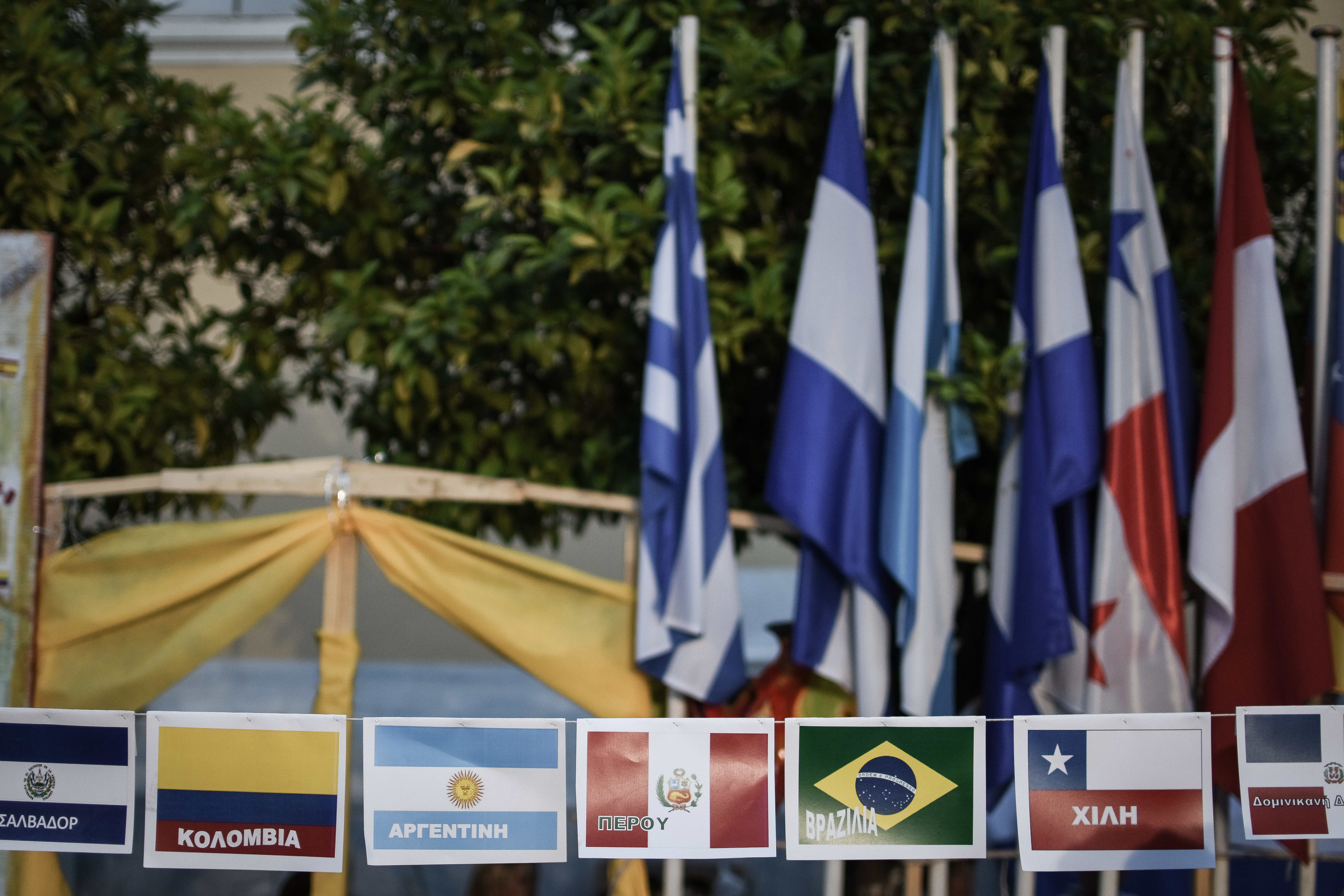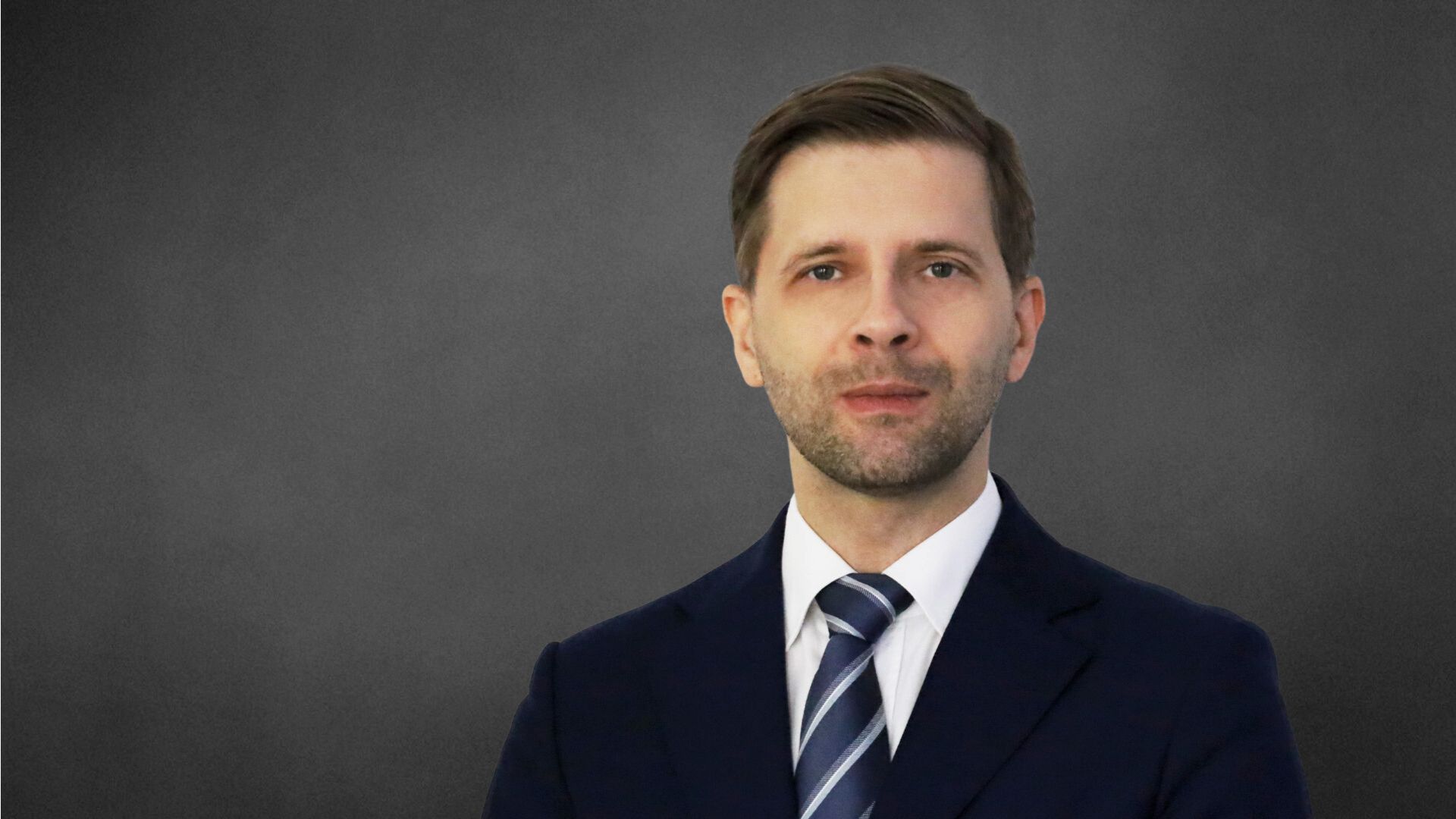Latin American Countries on Russia's Attack on Ukraine
Latin American governments differed in their assessment of the Russian authorities’ actions and decision to invade Ukraine. The regimes in Cuba, Nicaragua, and Venezuela were the only ones to clearly support Russia, but at the UN, most countries of the region expressed their opposition to the Russian aggression. Apart from Colombia, the other countries have not yet declared whether they will join the sanctions against Russia. There are concerns in the region about the negative effects of the restrictions introduced by the EU members, the U.S., and other countries. The priority for most Latin American governments is the evacuation of their citizens from Ukraine.
 Fot. Nikolas Joao Kokovlis/Zuma Press/Forum
Fot. Nikolas Joao Kokovlis/Zuma Press/Forum
Why are the positions of Brazil and Mexico important?
The two largest Latin American countries hold non-permanent seats on the United Nations Security Council (UNSC). In this and other UN bodies, both states supported resolutions condemning Russia for its aggression against Ukraine but differed in their justification of their positions. A few days before the invasion, Mexico pointed out in the UNSC that the Russian actions, including its recognition of the “separatist” areas of eastern Ukraine, were violations of the UN Charter’s principles on the threat of the use of force and of the territorial integrity of another state, among others. After the war started, Mexican Foreign Minister Marcelo Ebrard criticised the invasion and called for a ceasefire. President Andrés Manuel López Obrador declared that Mexico would not join the sanctions against Russia, explaining it as adhering to the principle of maintaining friendly relations with all countries.
Brazil, on the other hand, did not immediately condemn Russia as an aggressor. This description was initially opposed by President Jair Bolsonaro, who had met with Vladimir Putin in Moscow on 16 February. Bolsonaro declared on 27 February that his country would remain neutral, but—while assessing Russia’s actions—he repeated arguments used by the Russian authorities to justify the invasion (for example, about a “brotherhood of nations” and protection of the Russian-speaking population). According to Brazil’s position, the crisis was spurred by the undermining of the Minsk agreements by all parties and ignoring Russia’s security interests. Brazil also noted, however, that Russia’s concerns did not give it the right to invade another country.
Which countries support Russia?
The Russian authorities have gained support from the anti-U.S. authoritarian regimes in Cuba, Nicaragua, and Venezuela, all of which Russia has been supporting politically and economically for years. Representatives of these three countries argued that Russia’s decision to invade Ukraine was a defensive move against a growing threat from the U.S. However, even the authorities of these three countries have called for a peaceful settlement of the conflict, and the vote on 2 March in the UN General Assembly on a resolution condemning the Russian aggression showed that their support for Russia is not without limits. Cuba and Nicaragua abstained. Venezuela could not vote because it lost this right in January over arrears in payments of contributions to the UN, but the Nicolás Maduro regime was the strongest supporter of Russia in public declarations. Bolivia also decided to abstain because it treats Russia as an important partner, for example, in investments in exploitation of Bolivian lithium deposits and expansion of nuclear energy potential. Another abstention came from El Salvador, whose authorities explained that small states like theirs should not take sides.
How did other countries in the region react?
Support for dialogue and the cessation of hostilities is shared by other Latin American countries. The strongest criticism of Russia comes from Colombia, the only country with the status of a NATO Global Partner in the region. In mid-February, the Colombian President Iván Duque paid a visit to Europe. He met NATO Secretary General Jens Stoltenberg, among other leaders, and declared Colombia’s commitment to cooperate against Russia’s aggressive actions. The Colombian authorities announced that they would join the sanctions, but they refer to the potential UN measures. The Russian aggression has been unequivocally criticised by Chile’s president, Sebastian Piñera, and his successor, Gabriel Boric, who will take over on 11 March. Argentina’s position is worth attention as this country has been strengthening relations with Russia in the last several years. It was the first in the region to obtain supplies of the Russian Sputnik V COVID-19 vaccine. Moreover, on 3 February Argentine President Alberto Fernández met Putin in Moscow and encouraged him to strengthen bilateral trade cooperation and asked for Russian support for Argentina’s bid to join the BRICS grouping. Fernández, after initially balanced declarations, clearly condemned Russia, a stance reportedly influenced by suggestions from the U.S. and possibly by the president’s desire to erase the negative impression associated with his recent visit to Moscow.
What are the main concerns in Latin America?
Latin American countries’ top priority now is to evacuate their citizens from Ukraine. Among them there were nearly 600 higher-education students (over 90% from Ecuador) per Ukraine’s most recent data. In the long term, countries of the region are afraid of the negative economic effects of the sanctions imposed on Russia. They expect, for example, an increase in oil and food prices, and thus inflationary pressure. For example, Brazil, with its large agricultural sector, is afraid of limited access to fertilisers because Russia is a large supplier. There also appear opinions that the sanctions will cause an increase in the prices of imported goods from the EU, among other suppliers. In the public debate in the countries of the region, there are also concerns about the escalation of the war outside Ukraine and the threat caused by Russia’s suggestions it could potentially resort to use nuclear weapons.
What other repercussions could the war in Ukraine have for Latin America?
Depending on how long the sanctions are in place, companies in the region will be forced to adapt their supply chains, which probably will increase costs. Russia’s isolation may have negative consequences for the undemocratic regimes that rely on Russian support, for example, in circumventing sanctions on them. This is especially true of Venezuela, which has so far used Russian financial institutions for this purpose and holds some of its foreign exchange reserves in them. These countries may seek greater support from China to neutralise the negative effects of the sanctions imposed on Russia. So far, large Chinese financial involvement (loans, investments) have de facto allowed Russia to bear lower costs of cooperation with the three authoritarian Latin American regimes. The way in which Putin and his associates could be held accountable for war crimes in Ukraine may also be a blueprint for dealing with other leaders accused of crimes against humanity, such as the Maduro regime.
What would be the significance of mounting pressure from Latin American countries on Russia?
Russia is not a major economic partner for the region, but it has managed to develop cooperation in several important sectors, mainly arms (supplies and service), energy (projects in the field of nuclear power), space (monitoring stations of the Glonass satellite system), and agriculture (fertiliser supplies). Russia’s Sputnik V vaccine helped it strengthen its image and gave impetus for closer cooperation with various partners in the region. Putin will certainly look for ways to weaken the impact of the sanctions now being introduced by using Russia’s contacts in Latin America. That is why cooperation between the EU and the U.S. with partners in the region may be necessary to enact, maintain, and monitor the sanctions, as well as to reduce the collateral economic costs of the restrictions. One challenge to this cooperation will be Russia’s expanded range of influence of its state media (RT, Sputnik) in Latin America in recent years. It also has been improving the use of disinformation tools in social media (for example, bot and troll networks) to promote Russia’s official narrative and propaganda to discredit the U.S. and other democratic states.


